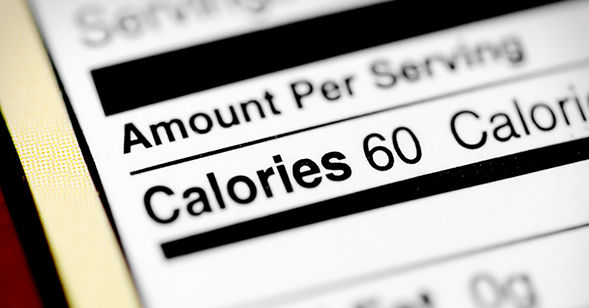The Pros and Cons of Calorie Counting
Calorie counting is premised on the idea that to lose weight you must be in a calorie deficit - that you need to burn more calories than you consume. This is true, however it is also a massive oversimplification of a very complex process. In my blog post I outline the pros and cons of calorie counting.
Pros of calorie counting
It keeps you accountable
I've always believed that food diaries are a great idea for people wanting to lose weight, as it forces you to think about what you are eating. If you have to write down everything that you eat, you are more likely to make better choices, especially if someone, like your personal trainer, will also be looking over it. If you don't want to write it down, then it's probably not a good choice. Tracking your food will keep you accountable.
It helps you realise how calorie dense some food choices are
Counting calories involves familiarising yourself with the calorie value of food, which can help you make better choices. For instance, when you realise how calorie dense your favourite burger is, you might just reconsider having it. You may still want a burger, but you might seek out a better, lower calorie and healthier option. Being familiar with the calorie value of food can help you make healthier choices.
It can motivate you to exercise
Sometimes it can be hard to see how every day small choices will help you reach your weight loss goal. Counting calories and logging the 300 calorie workout you did, gives you positive reinforcement for every workout that you do and will remind you that every meal and every workout counts.
It helps with portion control
There are many people who unwittingly eat too much, sometimes double or triple the recommended serving sizes of food, because they've never had to measure their portions. Spending a few weeks measuring your food can be a hassle, but it is a great way to bring your portion sizes back under control. You will also familiarise yourself with what a good size portion is and be able to keep your portions in check over the long-term.
Cons of calorie counting
It can lead to obsessive thinking and behaviour
Some people can get too caught up in the numbers and become obsessed with what they eat and how much they exercise every day in order to finish with a calorie deficit. Obsession about food and/or exercise is never healthy. It can lead to a "good versus bad" mindset that does not work for a long-term sustainable lifestyle.
It can mislead you to think lower calories is always better
Calorie counting can lead to thinking that calories are the enemy. That you must reduce your consumption of them or erase them with exercise. That the bigger calorie deficit you have at the end of the day the better your result.
When the sole focus is on calories in versus calories out, people can become too wrapped up in lowing their calories. This is a dangerous thing to do. 1,200 calories is the general number of calories health professionals say people should not drop below without suffering negative health consequences. 1,200 calories and below is what health professionals call "starvation mode". Starvation mode means your body realises it is not getting enough food and thinks that you are starving. To preserve itself, your body slows down your metabolism to almost a stand still to conserve energy. Because of this, when you do eat, your body will try and store the food as fat, as fat is your long-term energy source. Less calories does not necessarily equal a better result.
It can mislead you to think cardio exercise is best
A calorie focused mindset can lead to possibly discounting strength training as it does not burn as many calories per hour as a spin or aerobics class done. However strength training is critical for building muscle, which helps increase your metabolism. The more muscle you have, the better your metabolic rate. Calorie counting can also encourage overexercising, spending hours on a treadmill or cross trainer to burn off as many calories as possible. This kind of endurance training is ok sometimes, but if you are looking to lose weight and lose fat, this kind of training can raise the stress hormone, cortisol in your body, which can lead to your body storing fat around your mid section. Now, I'm not saying don't do any cardio exercise, it is good for your health, the key like most things in life, is balance.
All calories are not created equal
Calorie counting doesn't take good nutrition into account and could lull you in to thinking that lower calorie food is always better. This is not the case. Your body needs a mixture of macro and micro nutrients for good health and getting the right balance of nutrients will lead to better weight loss results. Your body responds to each food differently. All food you eat has an impact on insulin and glucose on your blood stream, and the different types of food will affect how, where and what, your body does with the food's energy. A calorie of protein does not affect your body the same way that a calorie of carbohydrate does. Calorie counting is far too simple to give you the whole picture. The key is to get the most nourishment possible for every calorie you consume.

